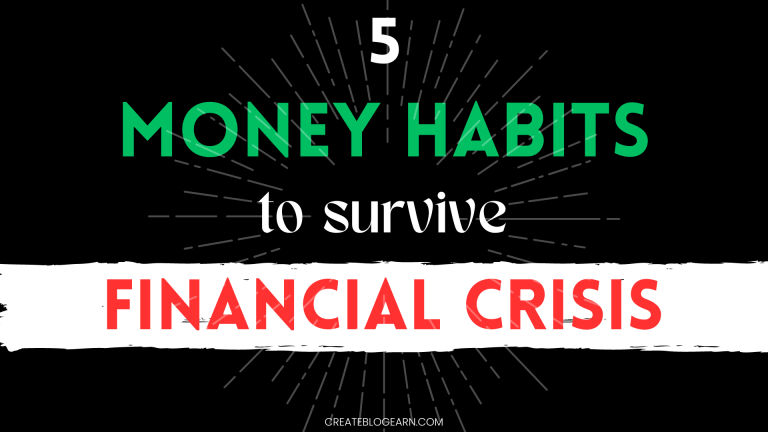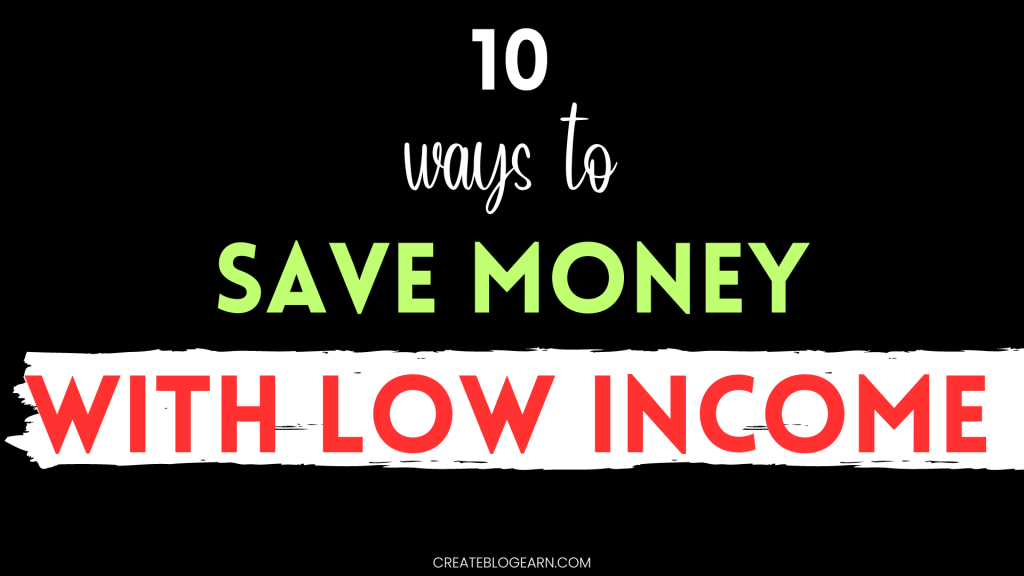I’m going to be sarcastic here – Other than relationships, money is the hardest thing to manage. Almost everyone have failed at least once and they think it’s not their fault. Although money and relationships are two different subjects, they have something very similar: You can manage them with a set of habits.
Good money habits make it easy to manage money and help you surf through the waves of financial crisis easily. Hence, in this these I’ll mention the 5 smart money habits that will protect your financial crisis.
I’ve used these habits personally, and have come out of excruciatingly painful financial crisis. And I hope these habits will help you become aware before recession hits.
(1) Smart Debt Management
Smart Debt Management involves strategic way to handle every kind of debt if you life. Be it student loan, credit card debt, personal loan, or any kind of loan for that matter. Smart debt management is absolutely critical to manage your financial situation.
Often people tend to delay loan payment even if they have the money to do so. This is a blunder that you must avoid at all cost. No, it’s not about your credit score, but more about surviving a financial recession.
Managing debt is absolutely critical if you want to have an overall financial wellness and save money for your future. Honestly, loan is like a swamp. It’s sneaky, smelly and engulfs you slowly whenever you try to move. The only way to protect yourself from a swamp is to stay away from it. Or, to move your body consciously to get out of it.
(2) Budgeting
I’m sure you know how much you make, but do you know how much you spend every month? How much of it do you save/invest? If at the end of every month you have a hard time calculating the expenses and feel like your money is just evaporating, then it’s high time you start budgeting.
A good budget alone can protect you from a financial crisis. I use budgeting as a process of elimination. I try to eliminate things that are not essential for my daily life. That way I automatically save substantial money, which I use for investing or filling my emergency fund. This idea of eliminating the unnecessary expenses came to me when I was reading a book on minimalism. Unfortunately, I cannot recall the name of the book, but it mentioned a super-simple process to remove clutter from life.
I had a strong intuition to try this process to manage my finances. Guess what? It worked like charm. So, Always try to make a budget that is balanced and doesn’t deprive you of essential things. Live a clutter-free life and also apply this technique to manage your finances.
If you’re having a hard time managing your budget, you can use the Goodbudget app. The base version is free and works quite well. Try it and see for yourself.
(3) Emergency Fund Allocation
No matter how seasoned a stunt artist is, they always use a harness to protect themselves from death. Your harness at times of financial crisis is your Emergency Fund.
The 80/20 rule works great in this scenario. If you make $100 a day, keep $20 aside as emergency fund. This fund accumulates over time and stays there to help during an unfortunate event. Emergency funds are mostly utilized during sudden medical expense, and unexpected job loss. An emergency fund provides a sense of financial security when nothing seems to be working right.
Here’s how I allocate my emergency fund:
My fund typically covers 9-12 months of my monthly expense. Yeah, I go a little too overboard with my emergency fund, but I love to secure my future. I give myself at least an year to regain confidence and enthusiasm. Then when the storm’s gone, I restart from zero again.
Have I ever used my emergency fund? Yeah, I have! I had NO INCOME SOURCE for 6 months, and was solely on my emergency fund. Fortunately, I was back on track before my funds got completely depleted.
So, if you are scared of your future, since countries are entering into financial recession, it’s high time you allocate as much emergency fund as possible. Trust me, you won’t regret it.
(4) Live Below Means
It’s hard to digest, but living below means is the last option many people choose when they experience severe financial crunch. You don’t have to go overboard, but you can try to live below means by cutting out on unimportant expenses.
To give it a more optimistic outlook, let’s call it Minimalist Living. Rather than living a life of lack, you can choose to live a life of minimalism.
Please keep this in mind that a minimalist living doesn’t mean depriving yourself of necessary things. It’s more like spending consciously and avoiding unnecessary expenses. Use the money to invest and accumulate more assets which will be more valuable in the future.
(5) Safe Investments
Money doesn’t grow on trees, neither does it grow if you save it. Money only grows if you invest regularly. This is something I have read and experienced personally. Investments are usually of two types:
(1) Safe
(2) Aggressive
Everything comes under these two. Businessmen/women know this quite well. They know the right time to invest in high-risk high-return assets, and when to back off to safe investments like Gold.
Most people start with safe investment like investing in Gold and Government Bonds. The returns are far lesser than stocks and other high-risk assets, but the risk is almost nil. Since you primary target is to protect yourself from financial crisis, you must start investing in low-risk assets.
Maintaining a balance between high-risk and low-risk is the sweet spot. But, if you invest smartly and learn more about it, you’ll soon develop an intuition. You’ll automatically know when and where to invest.
It’s often said that Gold is one of the safest investment when markets are weak. History have proved this repeatedly with the ever-rising gold prices. Of course, I’m not trying to convince you to buy Gold, but this is real fact. Gold is counted as one of the safest investments. This is the only asset that will never diminish in value.


